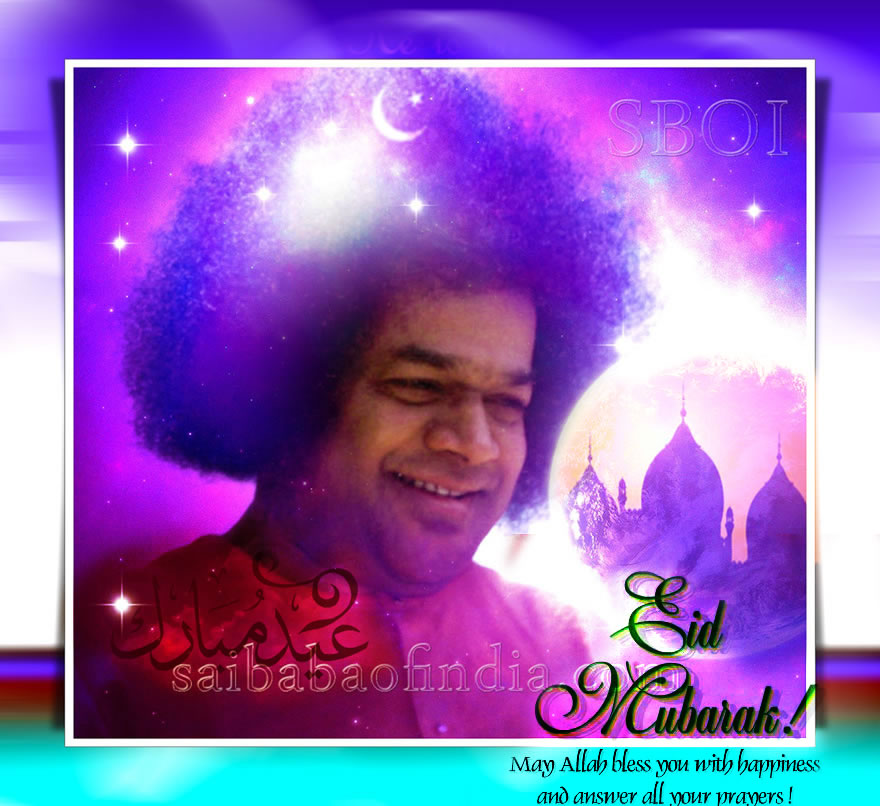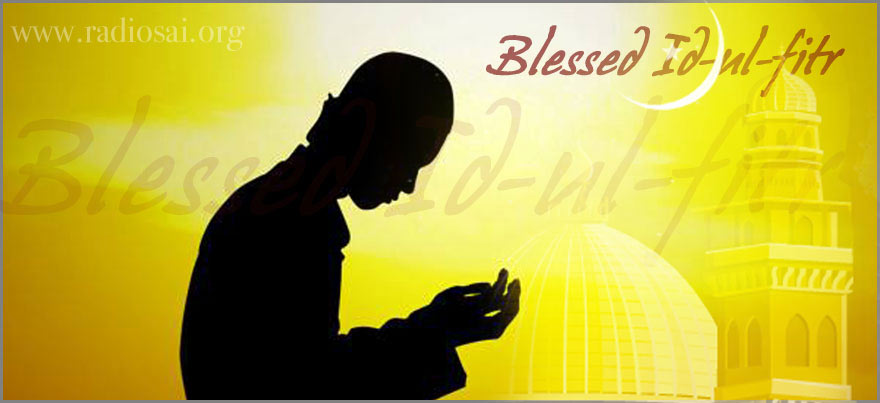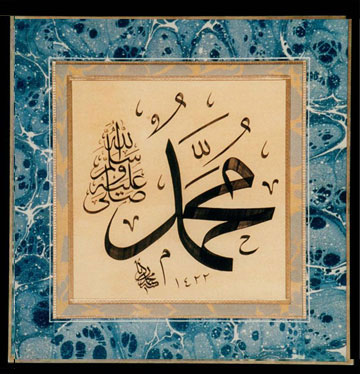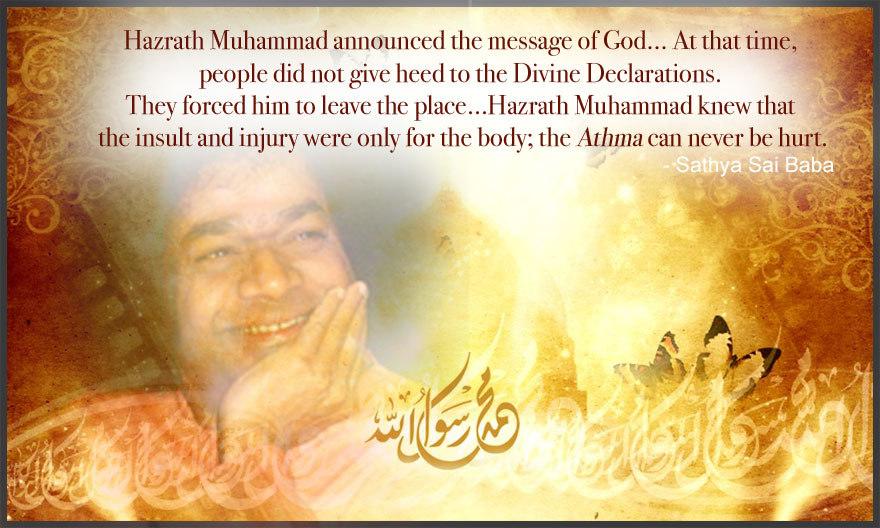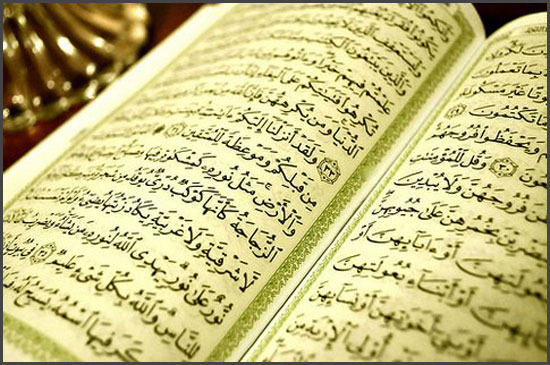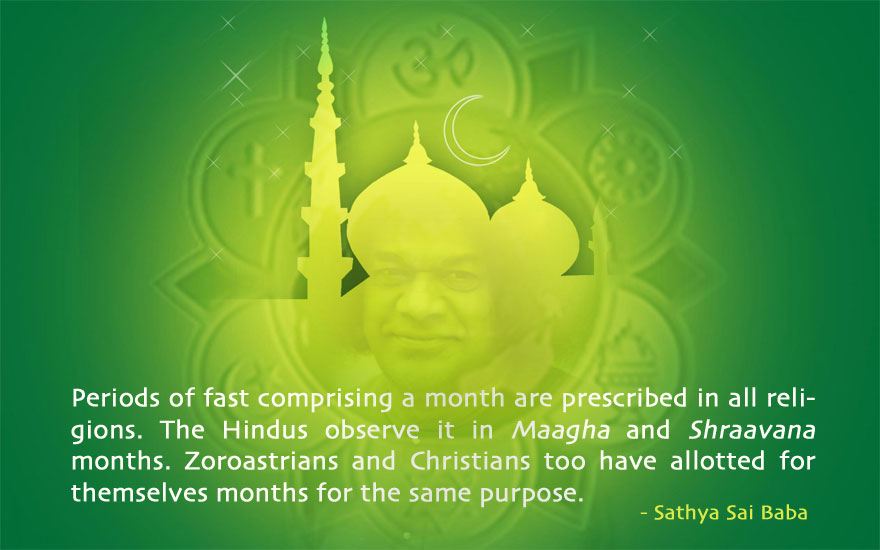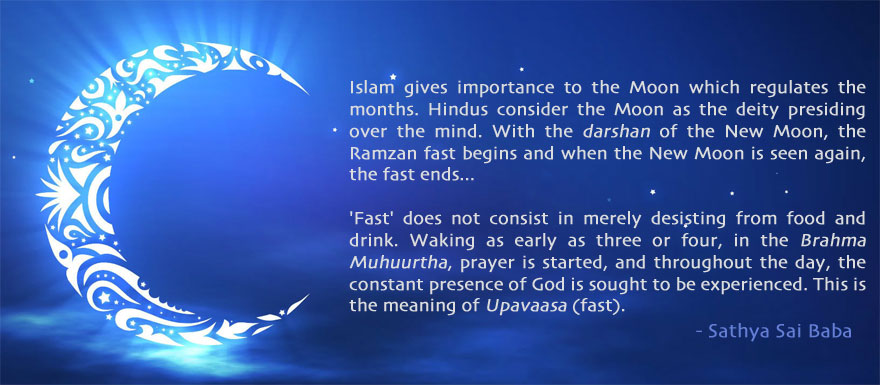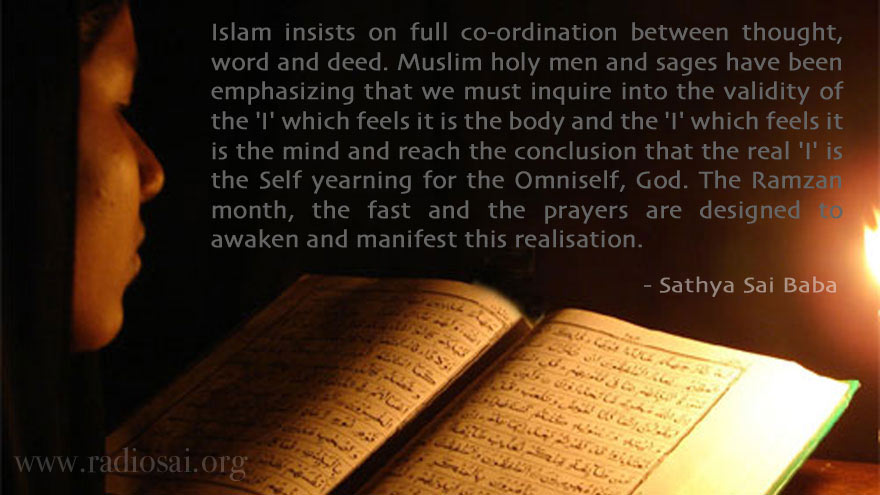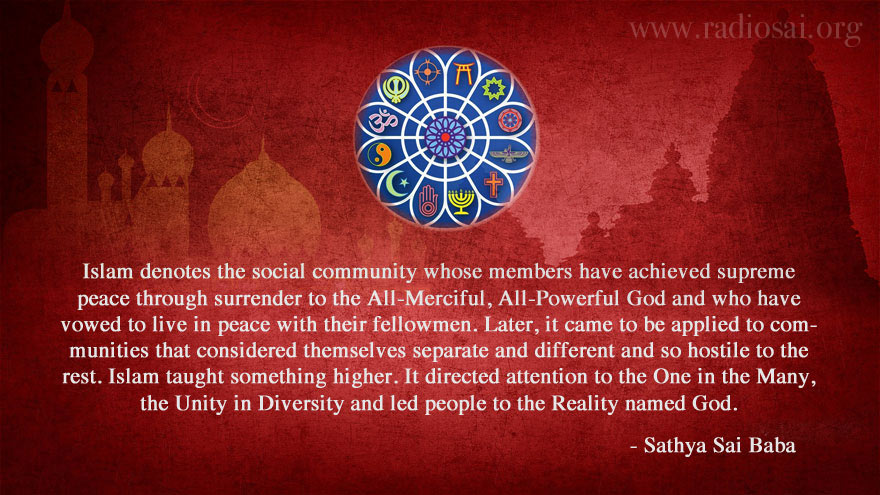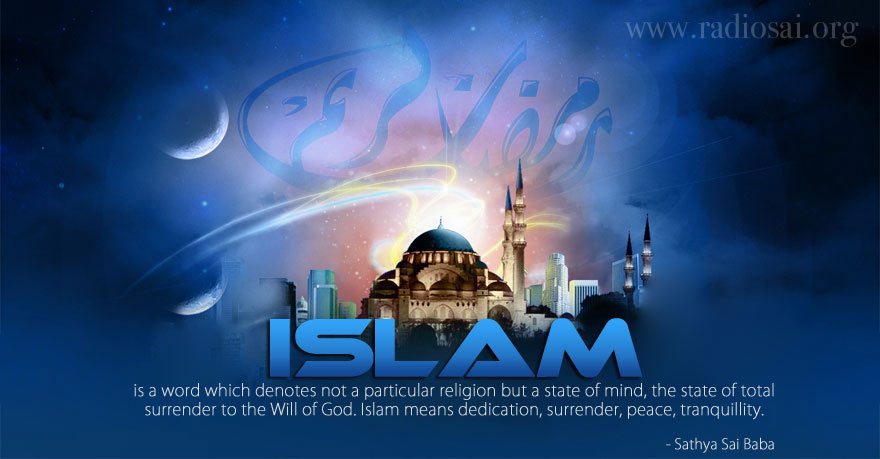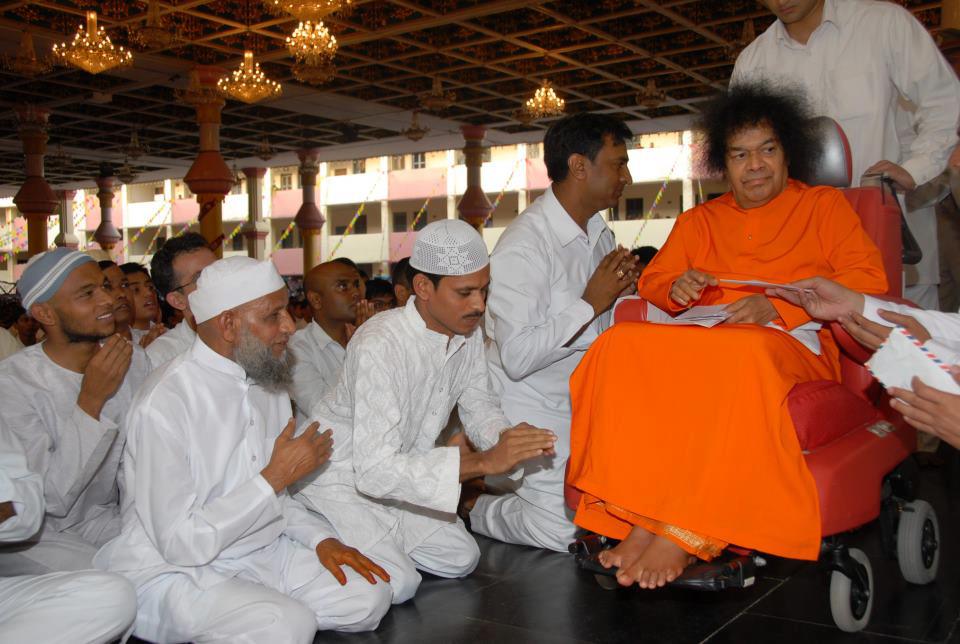|
|
|||||||||||||||||
|
“EID MUBARAK” |
|||||||||||||||||
|
The
Revitalising Ramadan Part-01
The month of silent
and sincere remembrance of the Lord is on. For the over 1.5 billion Muslims
across the globe, it is a time marked by prayer, penitence and the wilful
sacrifice of one's personal comforts and pleasures in honour of the Divine. This sanctifying festival began this year on July 9 and will end with the celebration of Id-ul-Fitr the moment sunset happens on August 7 (it is delayed by a day in North America this year). It is indubitably the holiest month in the Islamic lunar calendar – the month when Islam received its most invaluable treasure, indeed its very foundation. The auspicious period when The Qur'an was revealed to mankind through the sacred soul of Prophet Mohammed, peace be upon him.
It is common
knowledge that what Jesus Christ is to Christians, Prophet Mohammed is to
Muslims – a group that consists of 23 per cent of the earth's population. And
the number is constantly growing; they are projected to become 26 per cent by
2030. While many are
familiar with the name of the Prophet and perhaps with some of the commandments
that are central to this faith, few know more about the sterling personality of
this powerful messenger of God. Even fewer seriously reflect on his life and the
ideals he assiduously preached and practiced.
The Making of Mohammed Born in 569 AD in the city of Mecca in Arabia, the Prophet (peace be upon him) became an orphan in childhood. He knew neither the care of a mother nor the protection of a father. And this experience was the first preparation for the child who was born to sympathize with the pain of others. As a boy, he was a shepherd and looked after his animals with intense love. This reminds one of Lord Jesus who called himself 'the Good Shepherd' and of course Lord Krishna who is adored as Gopala - the Divine Cowherd Boy. Once while looking after his flock, another shepherd came to Mohammed and said, “I will look after your herd; you may go to the town and enjoy yourself. But after this you must take charge of my animals, and I will then go for having my time.” Young Mohammed said, “No, I will take charge of your herd. You may go, but I will not leave my charge.”
That was how principled the young Mohammed was. He had no formal education and was, in fact, unlettered, but he bequeathed to posterity such a masterpiece of literary marvel that even now, fourteen centuries later, mankind is still in awe and reverence. As an adult, he was so upright and conscientious in his character that people addressed him as al-Amin, meaning 'the trustworthy', and even his enemies adopted him as the arbiter in their personal disputes. As an entrepreneur, he was so astute and successful that in a short while he turned around the business of his employer, filling it with profits. And when foreign merchants oppressed the small traders of his area, he led from the front and formed an order of chivalry to protect the poor. Though he was one of the greatest warriors that mankind has ever seen – he had the whole of Arabia under his control within a few battles - he lifted the sword only in self-defence and it was always a bloodless battle won through his sheer moral force. More importantly, immediately after the incursion, he released all the vanquished and forgave their evil-deeds and mindless atrocities saying, “May God pardon you, go in peace; there shall be no responsibility on you today, you are free!” Such was his greatness that even after people crowned him as the king and his kingdom was rolling in gold and silver, he still mended his own shoes and coarse woollen garments, swept the hearth, kindled the fire and attended to the other menial offices of the family. The Awe-Inspiring Miracle of the Prophet Mohammed was God’s Chosen Messenger to establish truth and righteousness at a time when men had lost their sense of morality, and either did not believe in God, or had reduced religion and spirituality to senseless practices and spurious worship. Just like all the prophets before him, he came to awaken the divinity embedded within every man, and connect him to his Immortal Source, but his approach was unique. While Moses performed supernatural feats to startle the magicians of Egypt, known for their egoistic tricks; and Jesus healed the sick and raised the dead to shock his contemporaries who were skilful physicians, Prophet Mohammed’s astounding miracle was The Qur'an. The Arabs in those days were celebrated for their eloquence and excellent poetry, but what the unlettered Mohammed offered was matchless, and they were simply flabbergasted with his literary prowess and creativity. Let alone the profound message, the sheer majesty of its style, which is neither prose nor verse, and its captivating rhetoric clearly reflected that it was not the work of a human. In fact, in The Qur'an itself, it is mentioned that ‘Nothing is like it’ and the Holy Book challenges anybody who doubts its Divine Origin to produce anything similar.
The Revelation of the Quran – the Birth of Ramadan In fact how this happened is very revealing. At that time Mohammed, seeking solitude, used to retreat into a cave on the mountain of Ghar-e Hira. And at times it was not just hours but days and weeks, when he would be lost in meditation and contemplation. He sought to enter the cave of his heart in search of the Truth. Finally when he was 40, he received his first revelation from God. It came in the form of the Voice of the Angel Gabriel. The Voice said, “Cry out the Sacred Name of Thy Lord.” (Surah 96:1) The message filled him with awe, and he humbly said in reply that he was unlettered, and unable even to read. But the angel caught the prophet and pressed him hard. Still, the prophet replied, “I do not know how to read”. This happened a couple of times and finally the prophet said, “What shall I read?” Then the angel pressed him again and said: 'Read in the name of your Lord, who has created all that exists and has created man from a clot. Read! Your Lord is the Most Generous."
And gradually, the prophet’s heart started tuning into the Infinite. He realized his soul to be One, within and without, and the call came to him to go forward into the world and carry out the command of God; to glorify His Name and unite those who are separated, to awaken those who are asleep, and harmonize one with another. As it is written in the Holy Qur’an: "This Book we have revealed to you so that you may lead the people from out of darkness into light, into the path of the Mighty, the Glorious." (Surah 14:1) And this world-altering event happened in the month of Ramadan. To observe this sacred occurrence, Muslims the world over spend these four weeks in recitation of The Qur'an, and in prayer and fasting – sun up to sun down every day. In fact fasting or Sawm is one of the five pillars of the Islamic faith.
The Experience of Ramadan – Voices from America In 2010, the
American Public Media's talk show 'Speaking of Faith' (which has been renamed as
On Being), produced a very interesting programme called “Revealing Ramadan”. The
host of this programme, Krista Tippett invited Muslims to share what it means to
be a Muslim in spiritual as well as practical terms. There were responses from
all over the world – from teens to people in their 70s. Many of them reflected
on Ramadan as this is an indispensable and indelible experience of every Muslim.
Ramadan truly is a
period of family intimacy, of getting up early together when the world is quiet
and praying together. Then after nightfall, ending the fast every day in
celebration and prayers, again together with family and friends, and even
friendly strangers. They say the family that eats and prays together stays
together. Ramadan strengthens these filial ties and fosters harmony and
happiness in communities.
On one occasion Bhagawan Baba said: “The Qur’an has Salat and Zakat as the two eyes. Salat means prayer and Zakat means charity. Those who consider charity as a high duty and elevate their consciousness through prayers and continuous meditation on God are true Muslims.” Ramadan therefore is an excellent spiritual space created by the Prophet so that every Muslim can seriously strive to practise these significant and sanctifying tenets of Islam. Every Muslim learns to feel for the other and do their bit to reduce hunger and sorrow, depression and sadness in this world. There are more ennobling perspectives of this holy month.
Happiness steps up, Baba says, not when you multiply your desires but when you limit them. “Modernity lies in putting a ceiling on your desires. Control of one's desires is being modern not leading a life of limitless desires,” He asserts. True happiness is union with God, and every Muslim who practices Ramadan in this spirit of fasting for the love of God wholeheartedly experiences this deep peace within. Fasting is called Upavasa in Sanskrit. Baba says Upa means 'near' and vasa means 'to reside'. So Upavasa means 'to reside near God, or to be close to God'. This attempt to go close to God by immersing in His thoughts is the inner significance of fasting. And Ramadan provides this splendid opportunity to every Muslim to do this not just for a day or two but for 29 to 30 days. It is an intense period of reflection and self-introspection leading to purification. Baba says the essence of all spiritual practices is the cultivation of a pure heart.
From being a lovely
time for family get-togethers and delicious feasts, to reaching out to those in
real need, to raising one's consciousness to experience the bliss and peace of
being in tune with Allah – Ramadan is a tremendous spiritual odyssey. And it is
not meant only for Muslims, for who is not a Muslim? As Baba says,
“All who in a spirit of surrender and dedication,
live in peace and harmony in society, do really speaking, belong to Islam.
Because Islam means surrender to God.”
|
|||||||||||||||||
|
WHEN SATHYA SAI BABA GIFTED MOSQUE TO
PUTTAPARTHI.... AN EYE WITNESS ACCOUNT
Om Sairam dearest Sai Family
The holy festival of Muslims brothers and
sisters, Ramzan is going to be celebrated on August 9th 2013 in India
(hopefully the Eid ka Chand (Moon) will show up on this day). A month long
fasting will come to an end with a prayer to the All merciful Allah who has
given every thing that a life can ask for.
Puttaparthi, a " MINI WORLD", has a
considerable number of muslims. Lot of them are migrants from near by towns
and villages, who came in search of work. Any one who have a house in Parthi
would have definitely come across carpenters, plumbers, painters, masons,
taxi drivers etc who are Muslims.
In the HIStory of our beloved Lord, when we go
back to His schooling days, Swami is in pure ecstasy when He narrates how
His teacher Janam Mahaboob Khan realised the divinity in the Little Sathya
who other wise seemed to be a normal kid to other teachers. Even though the
Muslim religion says strict NO to idolatry or rev erring any other human
being as God, Swami won the hearts of so many Muslim brothers and sisters
right from His childhood days to the recent Iranian brothers.
Swami's institution also has seen so many
students from this community eager to learn vedas and explore the depth and
vastness of spirituality. For this academic year (2013-2014) (to my
knowledge) at least 8 Muslim students have joined Swami's institutions which
speaks how open and receptive they are towards Swami's approach of religion.
Before drawing attention of Muslims across the
globe, Swami made sure the local Muslims are looked after very well. It was
the days of "Black and White era" and local Muslims had to tread 5
kilometers to near by Bukkapatnam to offer prayers as Puttaparthi didn't
have a Mosque of its own. Realising the troubles the locals had to face,
Swami immediately built one beautiful mosque in Gokulam and was inaugurated
in August 1978 just before Ramzan.
The Young Man of yesteryear
in the picture is Mr.Mohammed a well known person to Puttaparthians who just
retired as a postman with a 40 years experience under his belt. I thought of
meeting him and getting more info on that memorable day. After retirement,
he now lives with his eldest son and family in a small house behind the post
office in Gokulam. The moment I showed this photo to him he had this 70MM
smile on his face with an effulgence of 1000 volt bulb. He said it was a
memorable day of my life. Swami spoke with me so nicely and full of love. He
was inquiring about our problems, about our families. He asked us to be
always united as all religions speak only about love.
He then said," Being a local postman, i had
the opportunity to see Him so many times. As the number of devotees were
very few in those days and no strict rules and regulations, there were times
when i personally delivered letters to Swami (both official and personal).
He used to joke with me saying i already have bundle of letters and you are
giving me heavy "work load" by bringing more. I couldn't say a word but
laugh at His timely joke. He used to give me new clothes for Dasara and
Ramzan and I knew it was a rare thing to happen. He said long ago, that the
whole world, including the Muslim world will come to Puttaparthi and i was
fortunate to witness this with my own eyes" .
He continued to say, " As years passed by,
things started changing and number of devotees were increasing day by day.
The chance of delivering the letters personally to Swami was not possible
any more but in the heart of my heart , even today, I know He is verily My
Allah who came into my life, made me happy and content"

(File photo of Mr.Mohammed having Ramzan
darshan with his two sons in the year 2009)
When I asked him what is so
unique about Sathya Sai Baba, He quickly replied " Swami never forgets any
one. No matter how poor you are, no matter how busy He is, He always has
time to look at you and smile and if needed talk to you. This is not to be
seen with my friends, many of whom are now businessmen and builders and
don't even look at me if not talk to me"
He continued to say, " Swami has been very kind
to my children. My grand son is now studying 4th grade in Smt.Eswaramma
School, (with his eyes brightly lit and with a sense of proud grand father
he said) " He can chant (mantralu) vedas much better than the local temple
priest"
There was no pride in this statement but a
sense of gratitude to Swami by a grand father who is proud of his grand
son's achievements courtesy of Bhagawan. I just couldn't stop my tears but
give him a big hug wishing Eid Mubarak, i took leave from him thanking Swami
from the heart of my hearts for letting me read another beautiful page from
the Book of Sathya Sai Baba's love for His devotees.
No place, No town, No country in this world has
this unique opportunity of housing so many religions, faiths sit together,
eat together, sing together other than Puttaparthi the abode of our beloved
Lord.
I remember those painful days of Swami's
hospitalization, when one fine evening, all the Muslim brothers took
Swami's photo in procession praying for His speedy recovery. This was a
heart warming scene which only shows how much Swami was loved by every
one and every body..
Let this Ramzan be a reminder to every one of
us that we are verily the one Human race. Let this Ramzan develop
brotherhood of Man and Father hood of God with in us and let this Ramzan be
an occasion to pray to our beloved Lord, thanking Him for all that He did
and is doing for us..
With Pranams at the Lotus feet of our beloved
Lord.
R.Satish Naik
|
|||||||||||||||||
|
|||||||||||||||||
|
The very root of Islam has been
based on Love and Surrender, echoed Prasanthi offering a comprehensive
presentation on the occasion of Eid-Ul-Fitr on August 20, 2012 in Prasanthi
Nilayam. Eid-Ul-Fitr marks the end of Islamic holy month of Ramadan. Wishing the august assembly greetings on the holy auspicious occasion, the presentation began with postgraduate students enacting a conversation involving an enthusiastic and curious youngster by name Hemant with some of his Muslim acquaintance. As an innocent Hemant grew curious to know the finer aspects of Ramadan festivity, the conversation prolonged converting Sai Kulwant Hall into a ‘virtual’ classroom, where ‘Ramadan and its finer aspects’ was discussed most comprehensively, helping the august gathering enlightened about the subject.
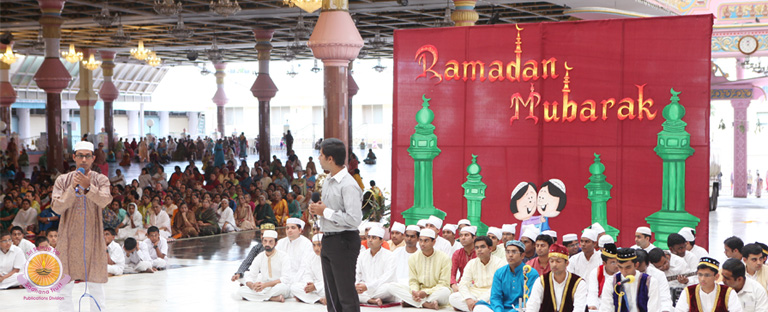
The word Ramadan is derived from the Arabic word Ramida, meaning scorching heat and dryness, symbolic of fire of hunger and thirst at a physical level while spiritually it connotes to intense spiritual yearning. It is only when one is turned away from senses, he is turning towards God; main principle behind Ramadan is the control of the mind. Discussing what entails the festivity, a group of turbaned boys clad in typical Islamic wear got into offering ‘Namaz’, the Muslim prayer, to the backdrop of recital of Holy Qur’an.
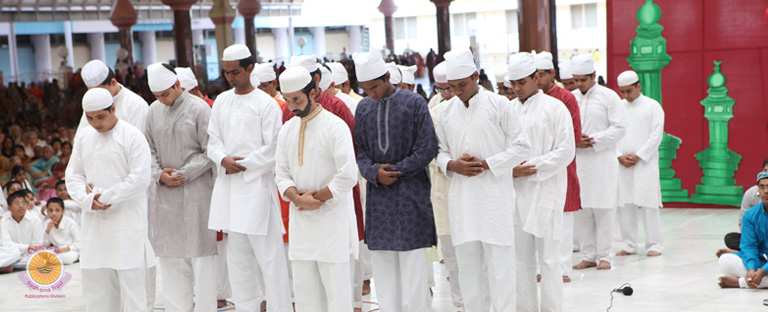
The ambient chanting that emanated with a soothing and heavenly touch wafted like a rhythmic music lifting every ‘heart’ presented in the august assembly. Ramadan is a penance that is undertaken to make it habituated in life, firmly engraving the same in character. Fasting is the external side of the festivity, while real significance lies in the transformation within. Mind should be singularly focused like the star on the crescent, said an enlightened Ahmed Bhai answering the curious youngster. Fasting entails crossing the gross ‘body’ aspect to get the mind absorbed in peace, get it fixed on Allah, the Almighty. A beautiful story about a painting competition was quoted from the Holy Qur’an, illustrating this point.
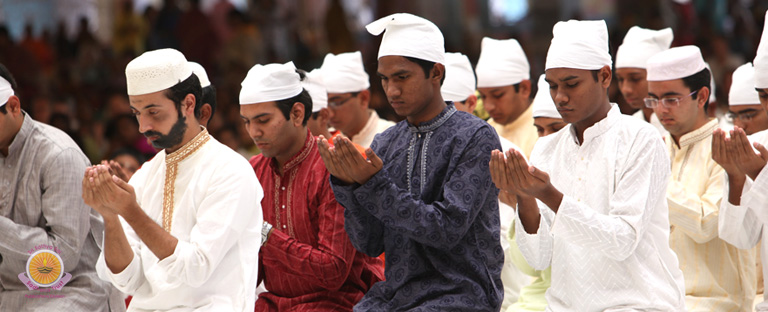
Singing His glory, the students soon burst into a Quwwali ‘Rahanuma Rahanuma Thujhse Roshan Hey Jahan…,” accompanied by soulful musical score. The five pillars of Islam, the five important tasks Allah has instructed for every true Muslim to adhere to, were discussed next. The five pillars are: Shahada, declaration of faith in Allah, as One God and Mohammed as His final messenger, Salah, the five-time prayer offered as per Islamic faith, the 3rd one is the month-long fast observed, and Hajj, the fourth pillar, holy pilgrimage to Holy Mecca. Fifth and final Pillar is Zakat, charity offered during the holy month as the very religion is based on love and surrender.
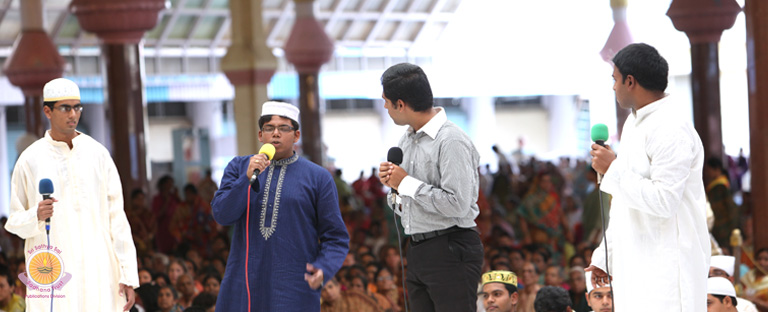
Enacting an episode involving two youngsters, Faizal and Rafeeque glorifying the fifth pillar, Zakat, the musical troupe burst a soul-stirring rendition, singing the popular Quwwali, Parvar Digare Alam…
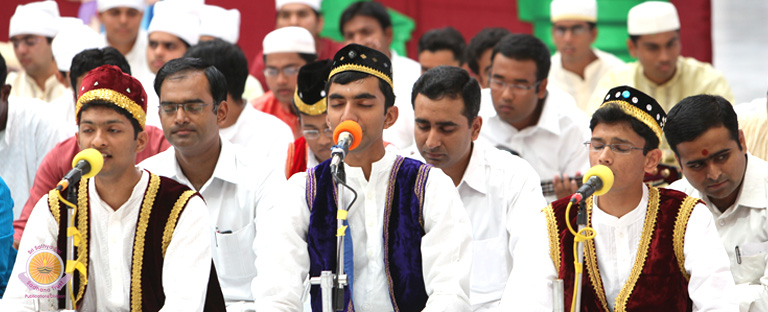
Depicting the most important virtue desired by a Muslim, Faith, an anecdote from the life of Mansoor, great saint from Benares was enacted next. When the young lad Mansoor, refraining from going for academia, moved around the streets shouting Analhaq, Analhaq, meaning ‘I am God…” none could understand his holy nature. When the lad was taken to the king, despite the king’s wise counselling, Mansoor declared that he knew he was God and so was with the king and everyone else. An enraged king ordered to take Mansoor to the ordeal room to chop his organs and limbs one by one as an act of punishment. At the end, when the king entered the room to assess the situation, he was shocked to see that every drop of blood of Mansoor’s body was chanting Analhaq…Analhaq…”I am God…I am God.”
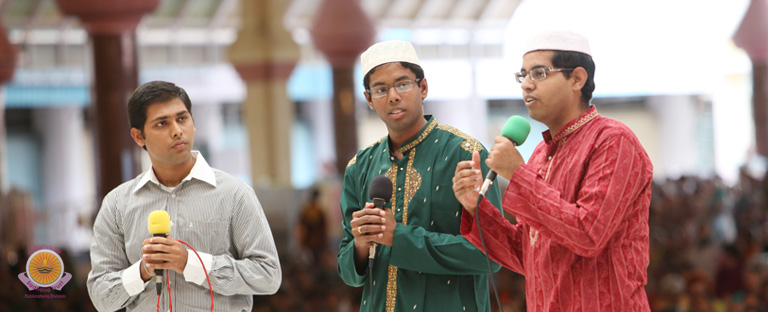
Singing paeans to Allah, the programme reached its final phase declaring: Each individual is a spark in the Supreme Consciousness and different religions are different paths leading to that one destination. Today’s world is divided into many by people who have not understood the purpose of religion. The presentation ended on a glorious note affirming that Prasanthi Nilayam endorses the sentiments of Oneness of all Religions, Oneness of Humanity; Prasanthi Nilayam is the destination of all our destinies. Singing the final song, Shirdiwale Sai Baba aaya hai tere dar
pe sawali the students wound up the fifty minutes presentation. II Samasta Lokah Sukhino Bhavantu II
|
|||||||||||||||||
